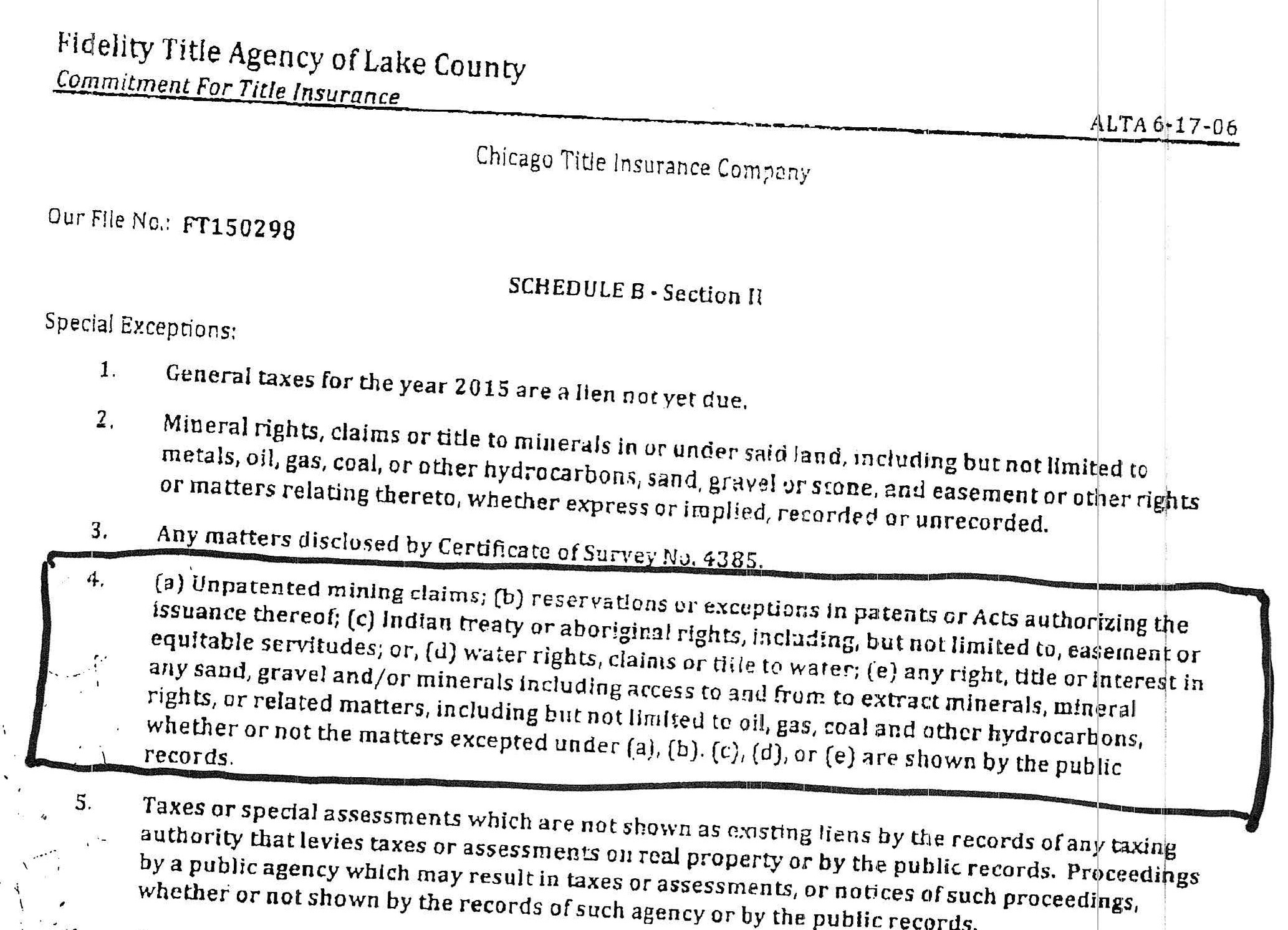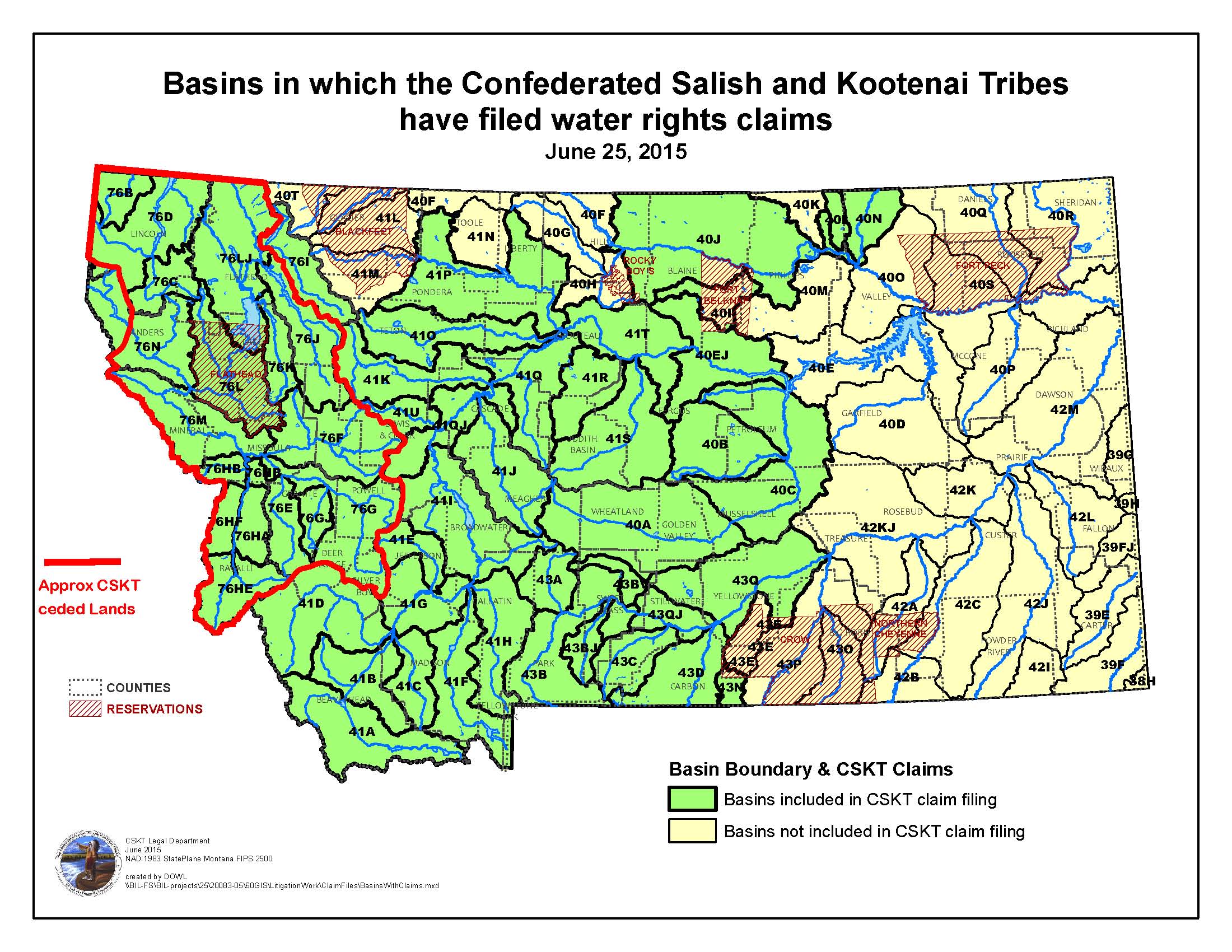© 2023 Concerned Citizens of Western Montana
Where or what do you consider your homeland to be? Is it where you currently live, where you were born and raised, or does your mind go back to the country where your ancestors migrated from? In the case of the latter, what kind of legal claim do you have to the land from which your ancestors came? Do you own aboriginal title to it?
In the case of the Confederated Salish and Kootenai Tribes, would you define their homeland to be:
- that portion of the Flathead Indian Reservation that still remains in trust?
- the entirety of the land within the exterior boundaries of the former Flathead Reservation notwithstanding the fact it was opened to settlement a century ago and most of the productive lands within the reservation are privately owned?
- the entirety of the tribe’s ceded aboriginal territory as per the terms of the Hellgate Treaty?
- the tribe’s historic “subsistence area” as indicated in their 10,000 claims across 2/3 of the state of Montana?
- whatever the United States or CSKT define it to be?
To what extent are you willing to allow the notion of a tribe’s homeland to be artificially, unconstitutionally, and unlawfully stretched to the point that it ignores the history of homesteading and settlement, legally binding Indian Claims Commission settlements, and private property ownership?
Are you willing to allow government to strip the water rights away from your land and cede them to the United States / CSKT under the guise of an Indian water rights settlement? Let us be clear, because the the CSKT Compact ceded most if not all of the water in western Montana to the tribes, it effectually turns property owners with bona fide water rights into mere “users of the fictitious tribal water right.”
Do you draw the line when the encroachment comes to your property, but ignore when it is happening to your fellow citizens?
Take a close look at your title insurance, especially if you’ve purchased property within the last 10-20 years. Have you noticed that it excludes all things related to Indians and Indian Reservations, including water rights? See: Title Insurance Exceptions

It’s pretty clear that the title insurance companies saw this coming long ago, even if you didn’t. With respect to the government overreach represented in the Flathead Compact, your title insurance is worth less than the paper it is printed on.
What Happens When Final isn’t Final?
In 1965 the Indian Claims Commission determined that the consideration paid to the CSK tribes by the United States, compared to the 1859 fair-market value of its ceded lands was unconscionable and the tribe was entitled to recover $4.7 million, less whatever offsets the U.S. was entitled to under the Indian Claims Commission Act. See: CSKT Indian Claims Commission and Court of Claims Settlement Summary
The proposed settlement was taken to the tribal membership, the majority of respondents in support of the settlement. On July 1, 1966 the CSKT Tribal Council unanimously voted to accept the proposed settlement by passing Tribal Resolution 1977, APPROVING AND ACCEPTING THE OFFER TO COMPROMISE AND SETTLE THE ABORIGINAL TITLE CLAIM OF THE CONFEDERATED SALISH AND KOOTENAI TRIBES, DOCKET NO. 61 INDIAN CLAIMS COMMISSION.
The parties entered into a stipulation agreement for final judgment that included the following condition:
“The judgment shall finally dispose of all claims or demands which petitioner has asserted or could have asserted in this case against defendant, and petitioner shall be barred from asserting all such claims or demands in any future action.”
See: Docket 61: the CSKT Off Reservation Aboriginal Claim
So if the tribe is LEGALLY PRECLUDED from asserting any claims within their ceded aboriginal territory, why did Montana agree to give the tribe significant claims to water outside of reservation boundaries, and even outside of their ceded territory?
Is it because all of western Montana is now defined as the tribe’s homeland with the intended goal of restoring all of it back to the CSKT?
How does the United States Define a Tribe’s Homeland?
On the other side of the coin, how do you think the U.S. Department of the Interior (DOI) defines the CSKT’s homeland? The encroachment outside of reservation boundaries has been going on for a good long while.
In 2013 we reported that the DOI restored land into trust for the CSKT in Lincoln County and in Ravalli County. See: Why is the Tribe Consolidating “Reservation Land” off the reservation?
Department of Interior Letter to Lincoln County Commissioners:
https://westernmtwaterrights.wordpress.com/wp-content/uploads/2013/04/department-of-interior-letter-3.pdf
Response from Lincoln County Commissioners to Department of Interior:
https://westernmtwaterrights.wordpress.com/wp-content/uploads/2013/04/letter-to-julian-courville.pdf
Department of Interior Letter to Ravalli County Commissioners:
Response from Ravalli County Commissioners to Department of Interior:
Ravalli County letter to DOI re: Medicine Tree Acquisition
In addition to the examples noted above, Bonneville Power purchases of land along waterways, within and outside of reservation boundaries throughout western Montana are also being restored to the CSKT under the guise of “environmental mitigation.”
Still Don’t Believe It?
- White House Fact Sheet: Building a New Era of Nation to Nation Engagement
- Interior Department Takes Steps to Restore Tribal Homelands
- Land Back: The Indigenous Fight to Reclaim Stolen Lands
- Audubon: How Tribes are Reclaiming and Protecting their Ancestral Lands from Coast to Coast
- US Officials, Tribal Leaders to Meet on Returning Lands
- Tribes Reclaiming Land Actually Happening
- Time to Return Land to Native Americans is Long Overdue
- NPR Which Indigenous Lands are You On? This map will show you.
Get used to it. No matter how ludicrous the notion is, the 2023 narrative is that if you are not an Indian you are living on “stolen” indigenous land that should be restored back to its original “owners.” The designated “owners” of such “restored” lands will not be people, they will be federal and tribal corporate governments.
If you control the water, you can control the people who rely upon that water for subsistence. You can also control where people live, and where they cannot live.
It matters not if you are Indian or non-Indian, or even if you live inside or outside the historic boundaries of the reservation. We are all being targeted under the same dystopian agenda.
Like it or not, the Flathead Water Compact is a huge step in the direction of the restoration of all of western Montana back to the United States / CSKT tribal government.
The direction that our respective governments are taking us is abundantly clear.
The question is: What are we willing to do to stop them?


Just watched Montana Economic Summit 2022 hosted by Steve Daines on YouTube. I was very surprised at what I learned. Guest speaker was Kevin O’Leary, investor and member of the TV show Shark Tank panel. O’Leary announced that he will build a “Data Center” in Polson. Another speaker was Akbar (?) who is investing big $$$$ in the data center. Also a employee of the CSKT tribal council. Data Servers have huge power needs – for sending & receiving data but primarily for cooling-the IT equipment generates a lot of heat which must be cooled to prevent overheating. Cooling can be done by air (AC) or water. But the need for power is huge. O’Leary thanked Daines & Gianforte for getting this deal done so quickly. Gianforte said he was focused on creating good jobs so Montana kids stay here & another equal priority was to preserve our way of life. Guess farm, ranch, irrigation & small biz lifestyle doesn’t meet his definition of a Montana lifestyle. Data Centers use infrastructure but very few employees- guards & IT managers but not many other employees. Site selection for Data Centers depends mostly on availability of power and internet servers – Spectrum etc. O’Leary said he was so pleased to be able to use hydro power as successful companies have to be “green – environmentally friendly”.
Excellent information, We will post your comment under the article linked above.
Thanks for making the water and power connection. We also believe that this will take vast amounts of hydropower resources that will eventually make it impossible for people to compete with the price paid by these companies for the power, making it cost of electricity prohibitive for people.
Please look at the comments below the article linked above. We looked into the funders of the project. They are out of Dubai.